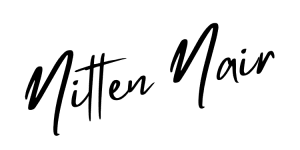Editor’s Note
 As the editor of Mythlok, my perspective on mythology is deeply rooted in an appreciation for its profound significance in human history and culture.
As the editor of Mythlok, my perspective on mythology is deeply rooted in an appreciation for its profound significance in human history and culture.
When we talk about mythology, the dictionary definition typically refers to a collection of myths, often associated with religious or cultural traditions. However, the true essence of mythology extends far beyond mere storytelling. It encompasses a rich tapestry of symbolic narratives, archetypal motifs, and shared beliefs that shape our understanding of the world and our place within it.
Mythology is, in essence, the collective imagination of humanity woven into a rich fabric of stories, legends, and symbols. It is the repository of our deepest fears and aspirations, our hopes and dreams, our understanding of the cosmos, and our place within it. From the epic tales of gods and heroes to the creation myths that explain the origins of the universe, mythology serves as a mirror reflecting the complexities of human existence.
It’s important to distinguish mythology from religion. While religion involves organized belief systems and rituals centered around the worship of deities, mythology encompasses a broader spectrum of narratives, including creation myths, hero legends, and moral allegories, which may or may not be tied to religious institutions.
One common misconception is that all mythologies are purely fictional. However, the truth is that myths often contain elements of historical truth, cultural memory, and metaphorical wisdom. They provide insights into the human condition, societal values, and existential mysteries, offering profound truths beyond the realm of literal interpretation.
Mythology is inherently cultural and geographic, reflecting the unique perspectives and traditions of different societies and regions. Each culture’s mythology offers a window into its worldview, cosmology, and collective psyche, enriching our understanding of human diversity and cultural heritage.
Consider, for example, the mythologies of ancient Greece and Rome, which have influenced Western literature, art, and philosophy for centuries. The stories of gods and heroes like Zeus, Athena, Hercules, and Achilles continue to captivate audiences around the world, serving as timeless symbols of power, wisdom, courage, and sacrifice.
Similarly, the mythologies of ancient Egypt, Mesopotamia, India, China, and the indigenous cultures of the Americas offer valuable insights into the spiritual beliefs, cultural practices, and social structures of their respective societies. These myths provide a window into the values, aspirations, and fears of ancient civilizations, allowing us to glimpse the rich tapestry of human experience across time and space.
The word “myth” is sometimes misunderstood as synonymous with falsehood. However, in the context of mythology, “myth” refers to sacred narratives that convey deeper truths and symbolic meanings. Mythology transcends literal truth, inviting interpretation and reflection on symbolic, metaphorical, and spiritual levels.
At Mythlok, we aim to showcase the interconnectedness and universality of mythological themes across cultures. While there are certainly cultural differences, we believe that there are more similarities than differences between mythological traditions. By highlighting these shared elements, we promote cross-cultural understanding, empathy, and appreciation for the rich tapestry of human imagination and creativity.
In essence, mythology serves as a bridge between past and present, East and West, myth and reality. It is through the exploration and celebration of mythology that we gain a deeper appreciation for the diversity, complexity, and beauty of the human experience. Join us as we embark on this timeless odyssey through the realms of myth and legend, illuminating the path to greater wisdom, empathy, and cultural unity.

